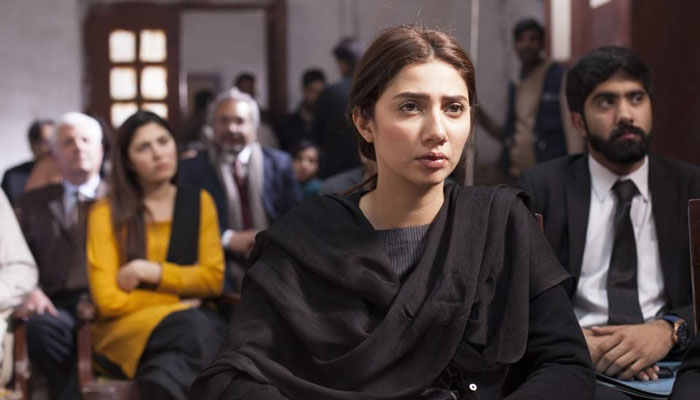Mahira Khan shares how Time's Up is crossing over to Pakistan
Actor says we are having constant debate about gender equality, talking about women, women in films and the kind of roles written for women
March 07, 2018

Pakistan’s biggest female star Mahira Khan has been using her prominence in the film industry to champion female empowerment.
The actor, who has been leading headline-grabbing Pakistani films and making history as L’Oréal’s first Pakistani ambassador, has said that time’s up and people today are standing up for what they feel is right.
Her latest film, Verna, which was briefly banned in Pakistan and will take center stage at the 2018 UK Asian Film Festival in March was based on a woman who stands up for her rights and doesn’t give up despite the challenges and the law failing her.
In a recent interview with Newsweek ahead of her UK visit, Mahira explained how the Time’s Up movement has been trickling into Pakistan and the power of the people to make a change.
“We knew there are certain things that have been said in this film that won’t go down well with certain people, certain institutions. And they didn’t. There was a feeling of, OK, it’s been banned—now what do we do? There was a handful of people who did not want it to go out, and then there was the entire brigade of people—a society—who created an uproar and said they want this film to be released,” she said while talking about the brief ban on Verna.
The actor added, “That pressure caused them to release the film. I don’t know what the outcome of Verna would have been 20 years ago, or 25 years ago, or 10 years ago even. But today people are like, ‘We’re not going to let you ban this film.’ I actually thought, OK, this is banned, or there will be several cuts. There were no cuts in the film. It only happened because people got up and talked about it—journalists, Twitter, talk shows debating it. There was enough pressure and it got released.”
“More than anything, Verna talks about power,” she added.
“Whether we talk about misogyny or patriarchal society or even abuse, they’re an act of power,” the Raees actor explained.
Responding to a question on what made her take up Verna, Mahira said, “When I heard the story, all I knew was there are lines in the film that I wanted to be able to say. There were a lot of other great commercial projects that were around at the same time, but as an actor, it was a hunger to be able to be part of something like this.”
Speaking about whether the "Time’s Up" campaign is crossing into the Pakistani film industry, the Bol actor said, “Absolutely. It all trickles down and it has trickled down.”
“There are certain themes running through the world that are very similar. Whatever is happening there is happening here. People are raising their voice there; women are raising their voices here. There’s a very similar pattern in this country as well. We are having constant debate about gender equality, we are talking about women, women in films, the kind of roles written for women. It has trickled down,” she upheld.
“I would like better stories, and I want to see better roles for men and women. As far as tackling things like pay parity, in this industry, that is also being talked about. I think most of us—me and my female co-actors—I think we all fight for our rights. I think we’re creating a good groundwork for future generations,” Mahira added.
Shifting focus to the recent death of Bollywood’s first female star, Sridevi, Mahira said, “It’s very strange. I did a film [recently] which has comedy. For that, I started studying old Sridevi films. Even though we’ve all been fans of her forever, as an actor, this was the first time I was blown away by certain things that she did that nobody else could do. I’m actually very grateful that I discovered that. It’s sad, but what a life she lived. I’m just grateful that we lived in the times of Sridevi.”
Further, regarding India recently upholding its ban on Pakistani talent in Indian films, the actor said, “I wish it was within our hands or our control. But it isn’t. It’s something governments are deciding, and so be it.”











